The question many architects, beginners and seasoned alike, ask is, what is the best architecture CRM? The question is multi-faceted and can have more than a straight answer. If you have similar questions, then this article is for you. We will explore the role a CRM plays in your business and how you can find the best one for you. Keep reading on till the end to know what will provide you with the most benefit.
What is a CRM for architects, and why is it important?
A Customer Relationship Management (CRM) system is a software tool that helps businesses manage their interactions with clients, streamline communication, and organize customer data.
While CRMs are commonly used in various industries, there are specific CRMs designed for architects that cater to their unique needs. Choosing the right CRM for your business is crucial as it can greatly impact your operations and client relationships.
For architects, a CRM serves as a central hub for managing client interactions, project details, and communications. It can allow you to efficiently track and manage leads, inquiries, and projects from initial contact to project completion.
A CRM designed for architects typically offers features such as project tracking, document management, collaboration tools, and client communication functionalities.
You might often work on projects with multiple stakeholders, requiring effective collaboration and communication among all parties. A CRM designed for architects can provide project management tools that help architects track project milestones, assign tasks, and share project updates with team members and clients.
Another unique aspect of architecture business CRMs is their ability to handle intricate project documentation. You might deal with a large volume of project-related documents, including drawings, specifications, contracts, and permits. A CRM can help out in that case.
A CRM designed for architects typically offers document management features that allow architects to organize, store, and retrieve project documents efficiently. This helps architects keep track of important project documentation, ensures version control, and enhances communication with clients and team members.
Lastly, a CRM designed for architects can also help with client relationship management. A CRM can help you maintain a comprehensive client database, track client preferences, and manage client communication. This lets you personalize their services, provide better customer service, and nurture long-term client relationships, leading to repeat business and referrals.
What business elements are needed?
Several key business elements are essential for smooth operations and effective client management for an architecture business. The best architecture CRM should at least have these elements.
Lead Scoring/Contact Information Tracking
In an architecture CRM, lead scoring and contact information tracking are critical components for managing potential clients. Lead scoring allows the business to prioritize leads based on their level of interest and engagement, enabling you to focus on the most promising opportunities.
The CRM should provide customizable lead scoring criteria, such as engagement with website content, email interactions, and other relevant actions, to assign scores to leads automatically. Additionally, contact information tracking should encompass a wide range of details and other relevant information.
The CRM should provide a central repository for storing and managing contact information, allowing easy access and updates to ensure accurate and up-to-date data for effective lead management.
Proposals
Proposals are a critical element of the sales process for an architecture business. The CRM should have robust proposal management capabilities that enable proposal creation, storage, and tracking.
This includes the ability to generate professional-looking proposal templates that can be customized with specific project details, such as the scope of work, timelines, deliverables, and pricing. The CRM should also provide functionality for tracking the status of proposals, including whether they have been sent, viewed, and accepted, allowing the sales team to follow up and close deals effectively.
Moreover, the CRM should provide collaboration features that enable team members to collaborate on proposal creation, review, and approval, streamlining the proposal management process and ensuring consistent and accurate proposals.
Contracts
Managing contracts efficiently is crucial for an architecture business, and a CRM should provide robust contract management capabilities. This includes creating and storing contract templates that can be customized for individual projects, including terms and conditions, payment schedules, and other relevant details.
The CRM should also facilitate contract approvals and signatures, allowing for seamless collaboration and communication between team members and clients.
Additionally, the CRM should provide contract tracking features, including status updates and reminders for contract renewals or expirations, ensuring that the business is always aware of the contractual commitments and deadlines.
Invoicing
Invoicing is a critical element of an architecture business's project management and financial process, and the CRM should have invoicing capabilities to streamline this process.
The CRM should provide the ability to generate and send professional-looking invoices to clients for services rendered, including customization options for project details, pricing, and payment terms.
The CRM should also provide functionality for managing payment tracking, including tracking the status of invoices, sending reminders for overdue payments, and recording payment receipts. Integration with accounting systems like QuickBooks or Xero can also benefit seamless financial management and reporting.
What is the best architecture CRM for you?
When considering the best CRM automation tools for architects, it's crucial to factor in ease of use, scalability, and integration capabilities to maximize productivity and efficiency.
Finding the best architecture CRM for your brand is no piece of the cake. It would be best if you took your time to review the different options on the market. Each of these has its own strengths and weaknesses. However, we would assess which one is most efficient in general. Here are some of the most prolific architecture CRM software.
Bonsai - Best for architectural businesses

Bonsai is a CRM solution specifically designed for freelancers and small businesses in creative fields, including architecture. It offers features tailored to the unique needs of architects, such as project management, contract creation and tracking, time tracking, and invoicing.
Bonsai also allows for customization to match individual business workflows and offers integrations with popular tools like Google Calendar and Trello.
Pros: Tailor-made for architectural businesses, customizable to match individual workflows, offers project management and contract tracking features and integrates with popular tools.
Cons: It may not have as extensive features as some other CRM tools and may not be suitable for larger businesses with more complex requirements.
Capsule CRM - Best for growing your business
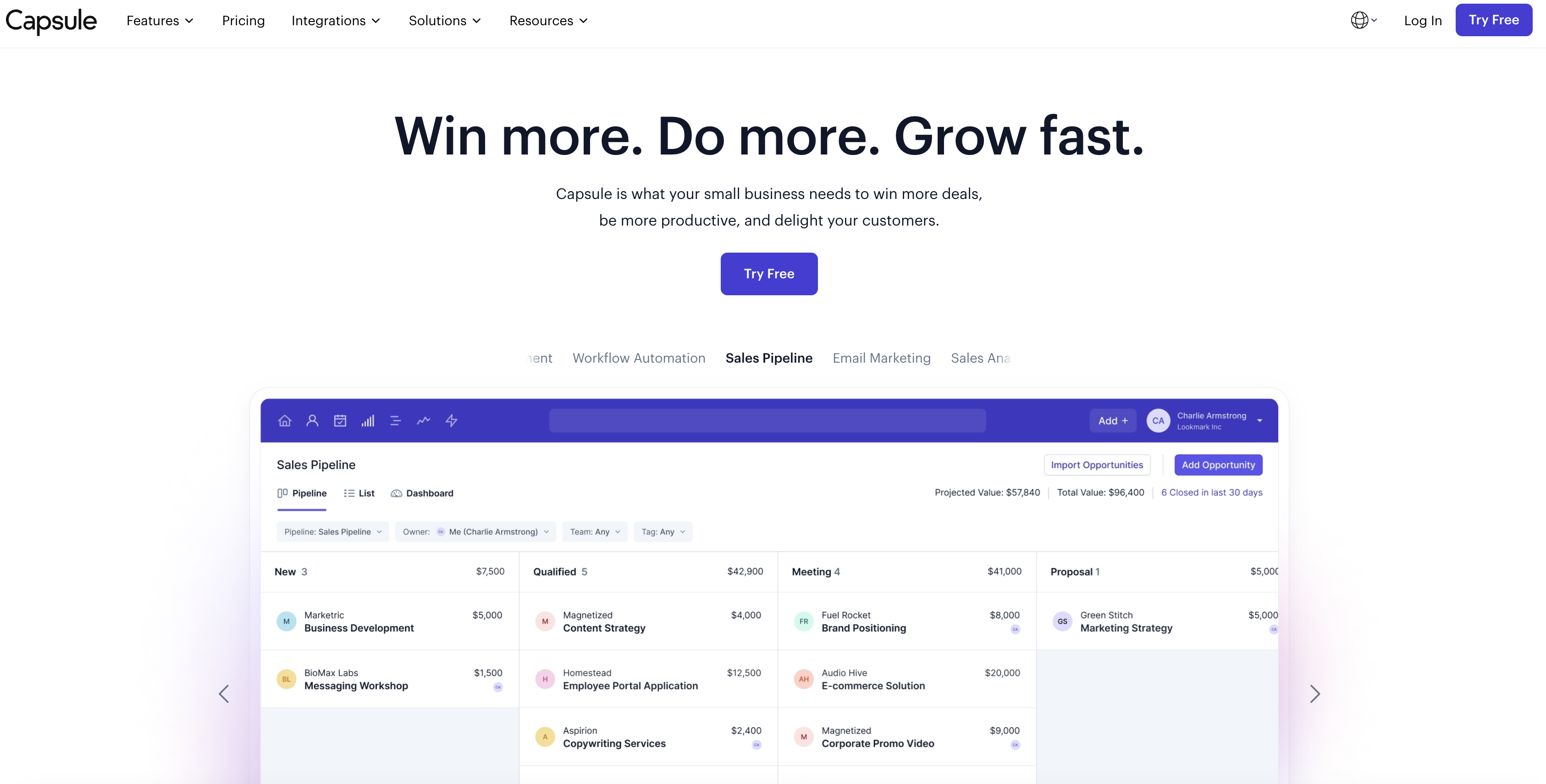
Capsule CRM is a user-friendly, cloud-based CRM solution designed for small to medium-sized businesses.
Known for its simplicity and ease of use, it offers essential CRM features such as contact management, sales pipeline tracking, task and calendar management, custom fields and tags, and email integration.
Pros: The free-forever plan and affordable pricing tiers make Capsule CRM accessible to startups and small businesses.
Cons: Limited functionality might not meet the needs of larger enterprises or those requiring advanced features.
Salesforce - Best sales CRM solution
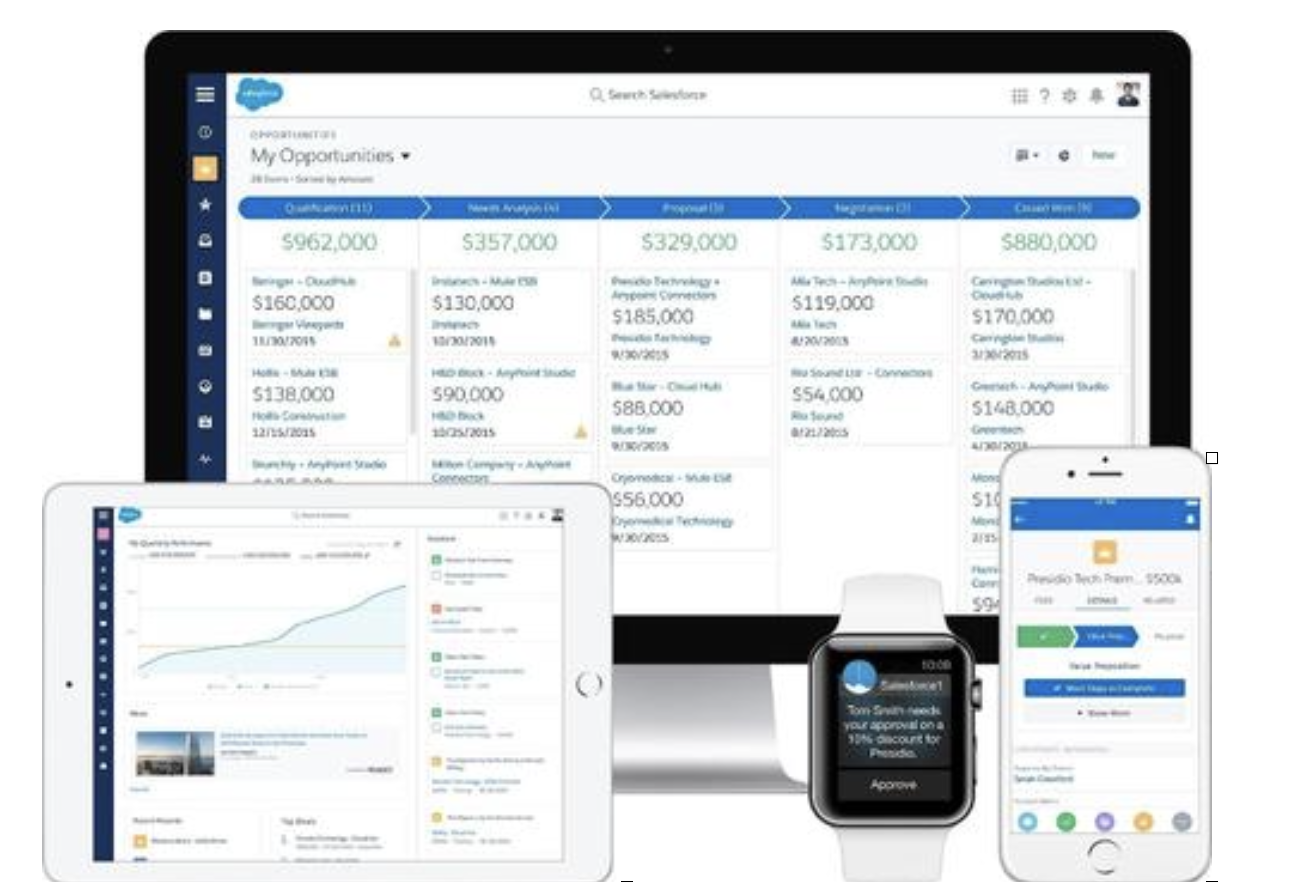
Salesforce is a CRM solution focused on sales and lead management. It offers lead tracking, opportunity management, contact management, and email automation features.
Salesforce also provides analytics and reporting capabilities to track sales performance and make data-driven decisions.
Pros: Focuses on sales and lead management and provides analytics and reporting capabilities.
Cons: It may not have extensive project management or contract tracking features and may not be suitable for architecture businesses with complex project workflows.
Monday - Best project-based solution
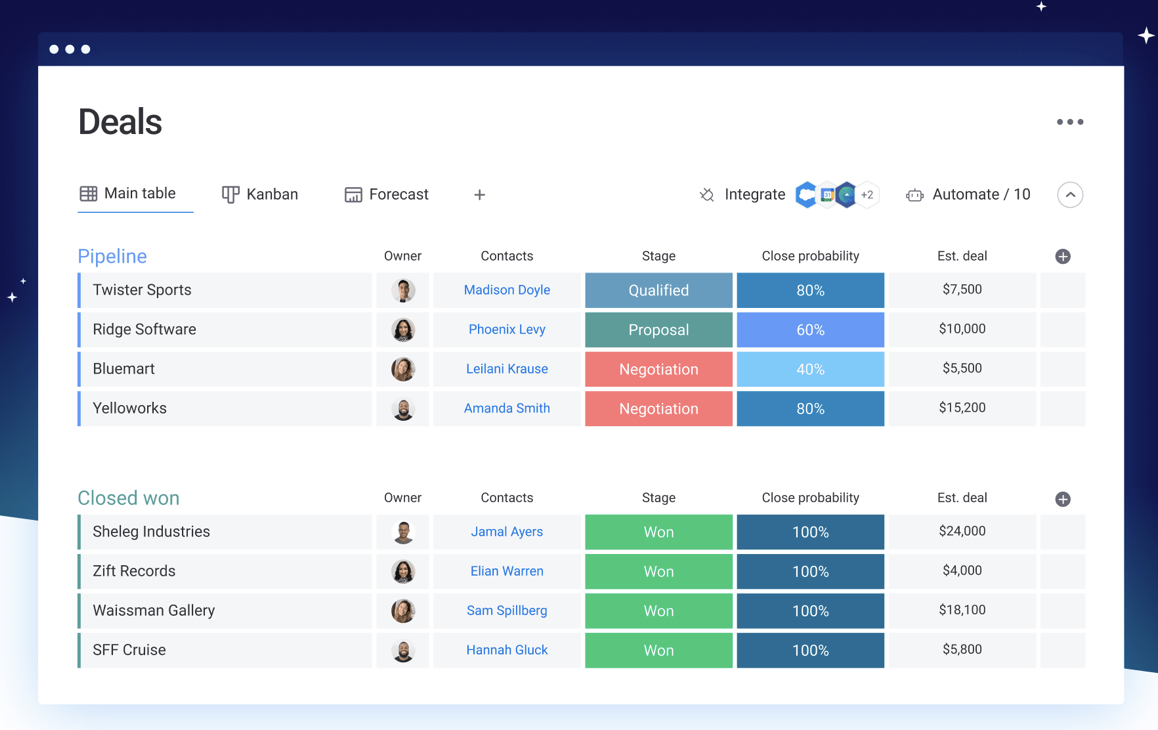
Monday is a project management and team collaboration tool that can be used as a CRM for managing projects, tasks, and team communication.
It offers features such as project boards, task tracking, document management, and team collaboration tools.
Pros: Strong project management and team collaboration features, customizable workflows, and integration with popular tools.
Cons: It may not have all the features of a traditional CRM and may require additional customization for specific CRM functionalities.
Zendesk - Best for customer service/support
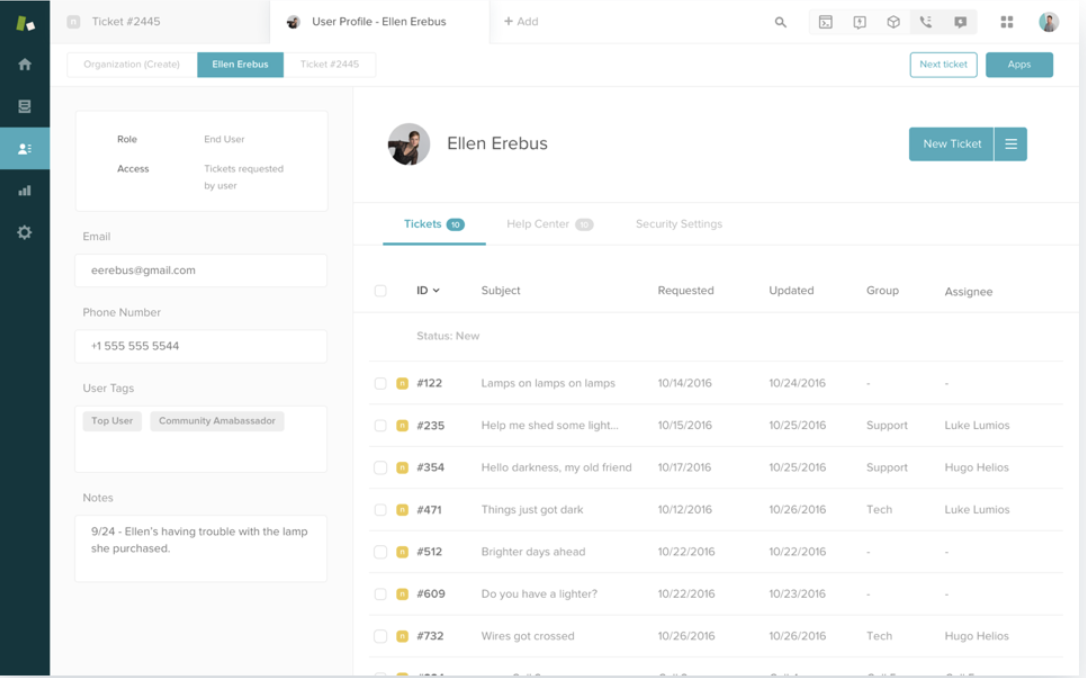
Zendesk is a customer service and support platform that offers features such as ticketing, customer communication, knowledge base management, and analytics.
It is suitable for businesses that prioritize customer support and require a comprehensive solution for managing customer inquiries and issues.
Pros: Focuses on customer service and support and offers analytics and reporting capabilities.
Cons: It may not have extensive sales or project management features and may not be suitable for businesses that do not prioritize customer service.
Keap - Low cost/low features set solution
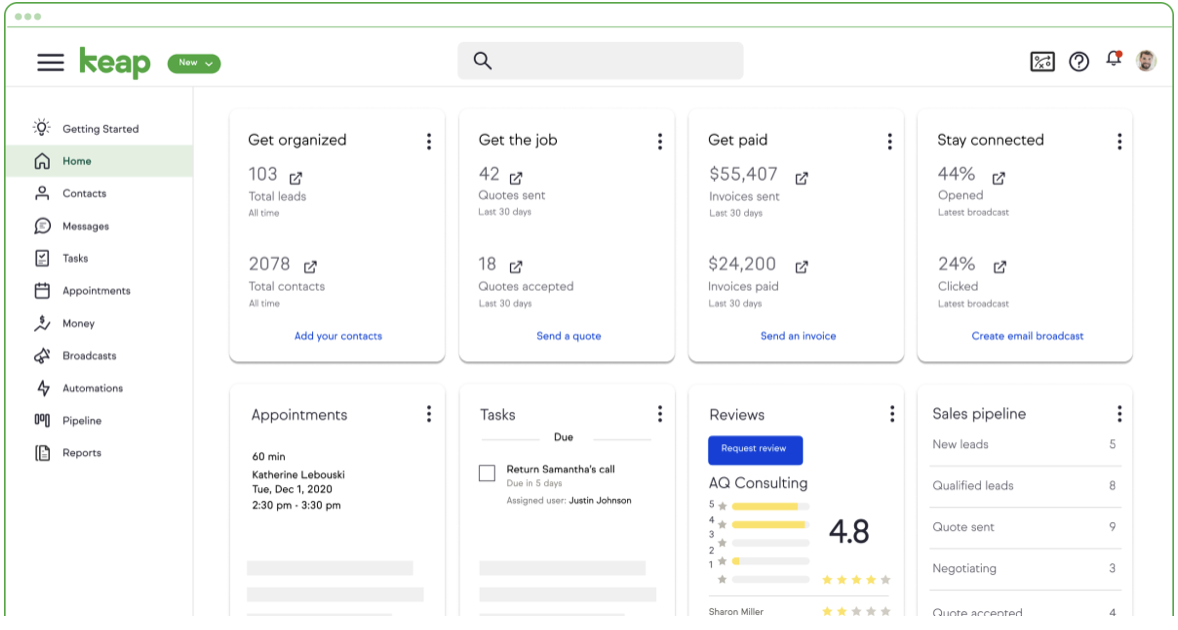
Keap is a CRM solution designed for small businesses with contact management, lead tracking, email automation, and appointment scheduling features.
It offers a simpler and more affordable option compared to some other CRM tools.
Pros: Affordable, suitable for small businesses, and offers basic CRM functionalities.
Cons: It may not have the advanced features required for complex business workflows or project management.
Pipedrive - Low cost/low features set solution
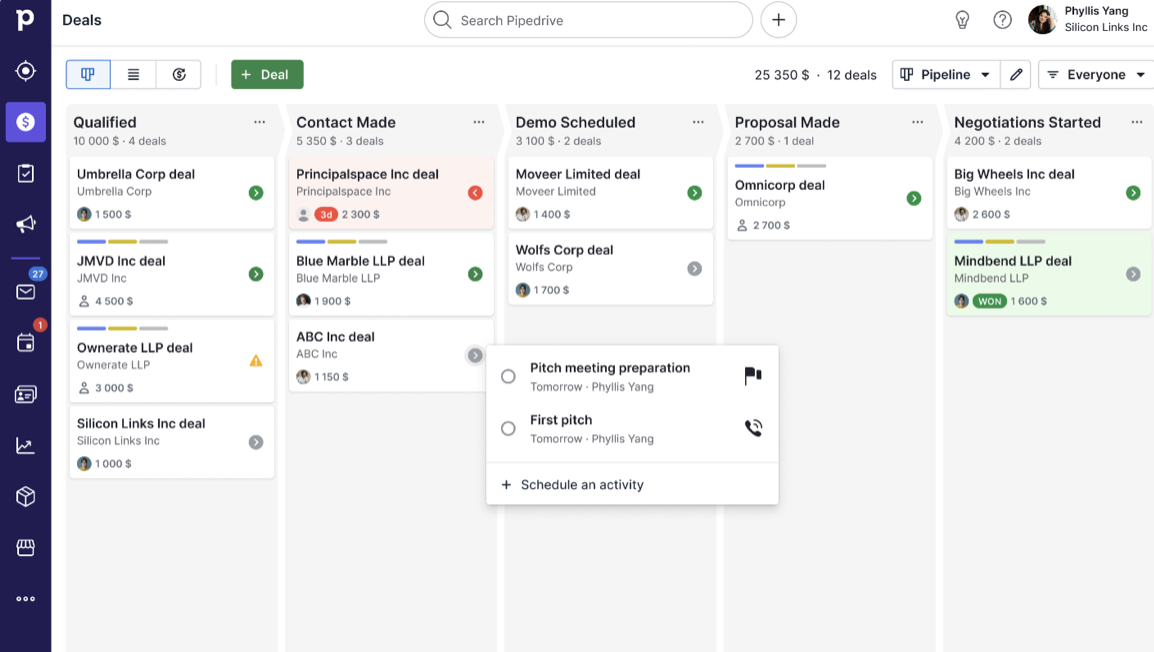
Pipedrive is a sales-focused CRM solution offering features like lead tracking, deal management, email automation, and sales analytics.
It is known for its user-friendly interface and simple yet effective sales management capabilities.
Pros: User-friendly interface, focuses on sales management, offers sales analytics.
Cons: It may not have extensive project management or customer service features and may not be suitable for businesses with complex CRM requirements.
Our pick for the Best Architecture CRM and why
Based on the provided options, our pick would be Bonsai as the best solution for architectural businesses. Bonsai is tailor-made for freelancers and small businesses in creative fields like architecture. Its features are specifically designed to cater to their unique needs.
It allows for customization to match individual business workflows, making it easy to adapt to different architectural project requirements. Bonsai also offers project management and contract tracking features, which are crucial for architects.
Overall, Bonsai provides a comprehensive CRM solution that is easy to use, customizable, and perfect for small businesses in the architecture industry. It might just be the best architecture CRM for you and your brand.







